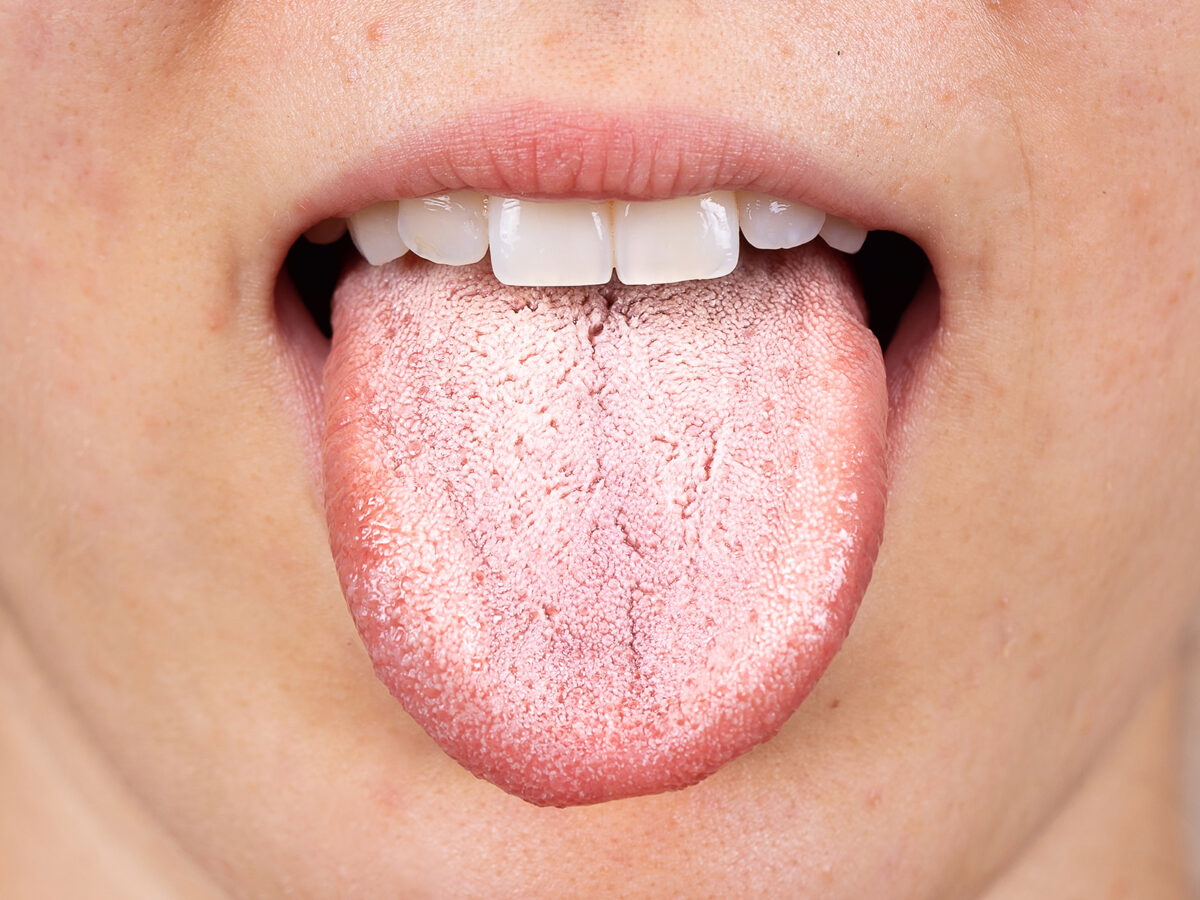Blog
Dental hygiene tips for healthy teeth & gums

What Are Some Common Causes of Dry Mouth?
When you feel nervous or dehydrated, your mouth might get dry. It is normal if it happens occasionally. But if dryness persists, it could indicate an oral condition called xerostomia. In this condition, your salivary glands are not producing enough saliva to keep your mouth wet, which is necessary to prevent tooth decay.
Typically there are two primary reasons for having xerostomia; one is medication, and another is medical treatments. When you develop xerostomia, you will have discomfort swallowing and other issues like a sore throat.
A dry mouth should be seen more as a symptom than a condition. As you read further, you will learn more about what causes xerostomia, its symptoms, and some preventive techniques for getting relief from xerostomia.
Significance of Saliva in Our Oral Health
Saliva is essential for our oral health as it keeps our teeth healthy. Saliva aids in cleaning and removing food particles stuck in your teeth. Here is how saliva helps:
- Bacteria in our oral region produce acids that are neutralized by saliva, preventing tooth decay.
- Saliva washes away food particles while limiting the bacterial growth
- Lack of saliva can cause bad breath or halitosis.
- You could have trouble wearing dentures and speech difficulties if you do not produce adequate saliva.
- Saliva enhances our ability to taste and aids in chewing and swallowing food.
- Saliva has certain enzymes which promote digestion.
Symptoms of Xerostomia
If your salivary glands do not have enough saliva, you might encounter some or all of the symptoms described below:
- You might feel a burning sensation in your oral region, or that area can feel sore.
- You could experience stickiness in your mouth.
- Lack of saliva often gives bad breath.
- You might experience difficulty eating, speaking, and swallowing.
- Your nose might feel dry.
- There is an increased thirst when one has a dry mouth.
- The tongue could become dry and develop grooves.
- Your sense of taste could change due to xerostomia.
- If you wear dentures, they would be difficult to put on.
- If xerostomia is more severe, you could experience dry skin and eyes, skin rash, tooth decay, and joint pain.
Most Common Reasons For Xerostomia
When something in your body causes salivary glands to produce less than the required amount of saliva, it results in a dry mouth. Dehydration is often the reason behind xerostomia, as your body does not have enough fluids to produce saliva. Some of the underlying medical conditions or problems which could cause xerostomia are:
- Medication – Many medications can cause xerostomia, such as antidepressants, cardiovascular drugs, anticonvulsants, antiemetics, decongestants, sedatives, and antipsychotics. If you check the leaflet of the medicine you are consuming, you might find dry mouth as one of the side effects.
- Cancer treatment – Cancer treatments such as radiation and chemotherapy are also one of the leading causes of xerostomia (especially if the treatment targets regions of the neck and head.)
- Autoimmune disorders – Patients who suffer from autoimmune disorders often have Sjogren’s syndrome, which is a disease that results in dry mouth and eyes.
- Blocked nose – If your nose is blocked, you tend to breathe through your mouth while you sleep, making it dry.
- Few other medical conditions – Some other medical issues that may result in xerostomia are multiple sclerosis, Type I diabetes, IBS (inflammatory bowel syndrome,) rheumatoid arthritis, and cystic fibrosis.
- Vitamin deficiencies – If you are deficient in Vitamin A or riboflavin, you could develop xerostomia.
- Smoking, alcohol, and tobacco consumption – Though alcohol or tobacco are not linked directly with xerostomia, regular consumption of these commodities can lead to or worsen it. Smoking is known to decrease saliva production, and alcohol is notorious for causing dehydration, so both could exacerbate any problem of dry mouth.
How to Prevent Dry Mouth?
A dry mouth would not disappear overnight but is a treatable condition. If you have a dry mouth due to radiation or underlying health conditions, you might have to live with it for a while. But we have some good news, i.e. you could do several things to minimize the effects of xerostomia.
- Increase fluid intake – Regular sips of cold water or any unsweetened drink can alleviate some of the discomfort caused by a dry mouth.
- Sugar-free gum or candy – You could chew or suck on sugar-free candy or gum to stimulate your salivary gland and produce more saliva.
- Avoid certain mouthwashes – Mouthwashes that contain alcohol could further aggravate your condition. Opt for mouthwashes that are specifically formulated for xerostomia.
- Limit caffeine and alcohol – Ideally, you should cut both of these out completely, but if you still feel the urge to have occasional alcoholic beverages ensure that you alternate each drink with enough water to keep you hydrated.
- Use a humidifier – Humidifiers add moisture to your room, relieving you from a dry mouth while you sleep at night.
If you suffer from xerostomia, it is essential to see a doctor. The underlying causes of dry mouth are varied, and only a doctor can help you treat them and provide you with the best action plan.


